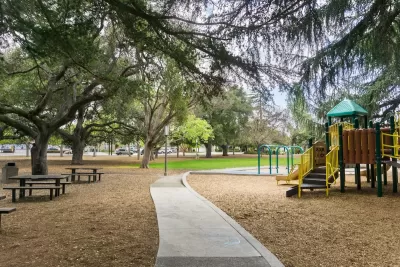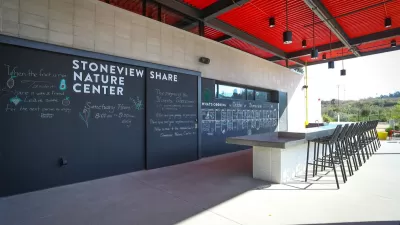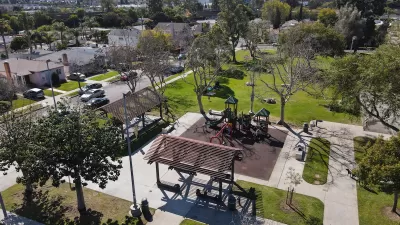Securing the care and maintenance of parks in the long-term requires sustained funding, equitable resource allocation, and political leadership and will.

Parks are indispensable assets for communities, offering recreational spaces, promoting mental and physical health, fostering social connections, and supporting environmental sustainability. They improve air and water quality, reduce urban heat, and enhance biodiversity, making them critical to both public health and environmental goals. However, a significant gap exists in funding for their ongoing maintenance and operations. While there are grants that fund park creation, they rarely address long-term care, leaving municipalities to struggle with routine maintenance costs like landscaping, repairs, and staffing. Without adequate support, parks can deteriorate, jeopardizing safety and diminishing their benefits to the community.
The lack of sustained funding for park maintenance disproportionately affects underserved communities. Parks in low-income neighborhoods, where they are most needed, often fall into neglect due to insufficient resources. This exacerbates existing inequities, depriving residents of safe, functional green spaces for recreation and connection. Equitable access to well-maintained, high quality parks requires a shift in funding priorities, emphasizing long-term investments over one-time projects. Solutions include dedicated funding streams, partnerships with nonprofits and private entities, and community engagement to supplement resources for ongoing care.
Addressing the park maintenance funding gap requires strong political will and leadership. Policymakers must prioritize parks as critical infrastructure, advocating for dedicated funding mechanisms and equitable resource allocation. This involves rallying public support, fostering collaboration across sectors, and ensuring maintenance funding is built into legislative and budgetary decisions. By committing to the long-term stewardship of parks, leaders can safeguard their benefits for future generations, enhancing public health, environmental sustainability, and community equity.
FULL STORY: From Creation to Care: The Need for Ongoing and Additional Funding to Operate and Maintain Parks

Planetizen Federal Action Tracker
A weekly monitor of how Trump’s orders and actions are impacting planners and planning in America.

Congressman Proposes Bill to Rename DC Metro “Trump Train”
The Make Autorail Great Again Act would withhold federal funding to the system until the Washington Metropolitan Area Transit Authority (WMATA), rebrands as the Washington Metropolitan Authority for Greater Access (WMAGA).

The Simple Legislative Tool Transforming Vacant Downtowns
In California, Michigan and Georgia, an easy win is bringing dollars — and delight — back to city centers.

The States Losing Rural Delivery Rooms at an Alarming Pace
In some states, as few as 9% of rural hospitals still deliver babies. As a result, rising pre-term births, no adequate pre-term care and harrowing close calls are a growing reality.

The Small South Asian Republic Going all in on EVs
Thanks to one simple policy change less than five years ago, 65% of new cars in this Himalayan country are now electric.

DC Backpedals on Bike Lane Protection, Swaps Barriers for Paint
Citing aesthetic concerns, the city is removing the concrete barriers and flexposts that once separated Arizona Avenue cyclists from motor vehicles.
Urban Design for Planners 1: Software Tools
This six-course series explores essential urban design concepts using open source software and equips planners with the tools they need to participate fully in the urban design process.
Planning for Universal Design
Learn the tools for implementing Universal Design in planning regulations.
Smith Gee Studio
City of Charlotte
City of Camden Redevelopment Agency
City of Astoria
Transportation Research & Education Center (TREC) at Portland State University
US High Speed Rail Association
City of Camden Redevelopment Agency
Municipality of Princeton (NJ)





























